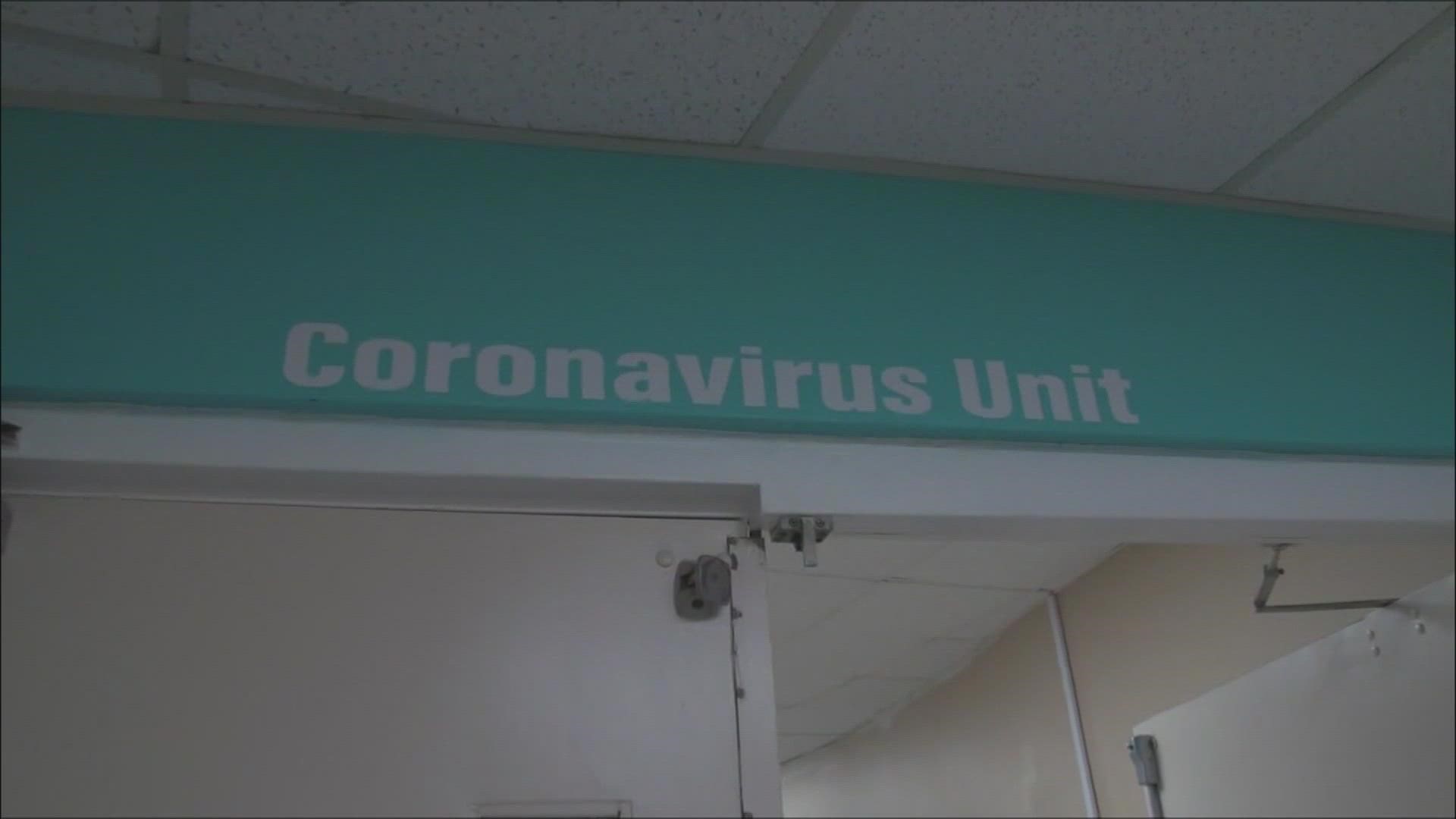DALLAS — The number of people in North Texas hospitals with COVID-19 is the lowest it's been since the state started tracking the data in April 2020.
According to the state's dashboard, there are 264 total COVID-19 patients in hospitals in the region: 205 of those patients are in general beds, 42 are in ICU beds and 17 are pediatric patients.
In January, there were more than 4,000 patients hospitalized in the region with COVID-19.
"It’s something you can feel," said Dr. Mark Casanova, a member of the the Texas Medical Association's COVID task force and a doctor at Baylor Scott & White. "You walk in our hallways…walk in our ICU…you can feel the difference. We’re getting there."
A study released last week from UT Southwestern showed that hospitalizations have plummeted in all age groups at Dallas, Tarrant, Denton and Collin counties. The study also showed infection rates are down for all cities in Dallas County.
"Our numbers have been decreasing over the past several weeks," Dr. Phil Huang, director of Dallas County Health and Human Services, said.
About a week ago, Dallas County moved from an orange transmission level to yellow, which Dr. Huang said is the lowest its been.
“It’s looking good, but there are always cautions we’re worried about," Dr. Huang said.
Dr. Huang and Dr. Casanova said the medical community is cautiously monitoring the BA.2, or "stealth omicron" variant.
“It is definitely more easily transmitted than the original omicron variant," Dr. Huang said. "Thus far, it doesn’t seem to be causing any more severe illness. It still seems to be responsive to the vaccine.”
Dr. Huang and Dr. Casanova said the best thing people can do is to get vaccinated and get a booster, if they haven't. They're waiting for guidance from the FDA about a possible fourth dose.
ABC News reports the FDA could authorize a second booster shot for Americans older than 50 years old, as soon as Tuesday. Sources told ABC News the shot will likely be offered but not formally recommended, and they would likely be available to the general public later this year.
Dr. Casanova said even though there were supply issues with vaccines when they were first offered, he doesn't anticipate any issues with meeting booster shot demand.

